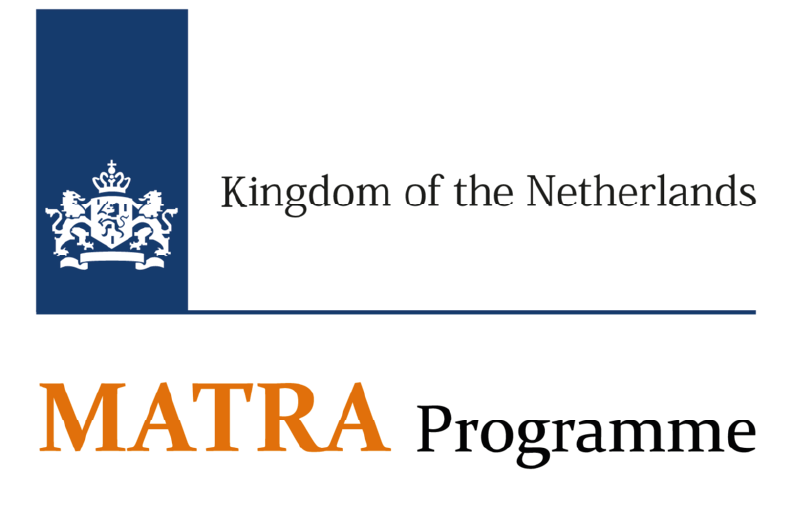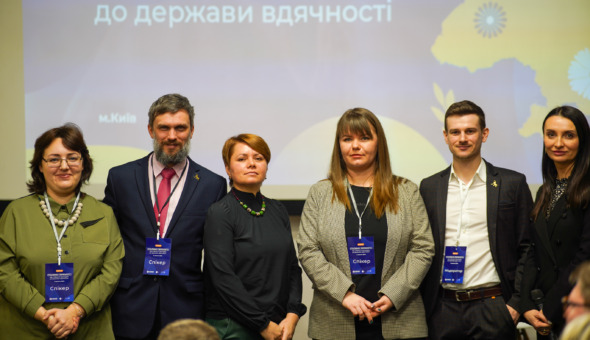
As last year, expenditures on social protection are the second largest item in the state budget, after the defense of Ukraine. In 2024, the financing of all budget items, where the main manager of budget funds is the Ministry of Social Policy, amounts to more than 470 billion hryvnias, which is 25 billion more than in 2023.
The 2024 budget is again social
The financing of these expenses will be carried out almost entirely at the expense of external borrowings, which, as planned by the Government, will amount to 1.7 trillion hryvnias in total. Considering that this is a loan and not a grant, we already have to repay over 182 billion hryvnias this year.
That is why it is critically important that, despite the emergency situation and the humanitarian crisis in which Ukraine is, every hryvnia in the field of social protection is spent in such a way as not just to cover another gap, but also to give impetus to people to overcome difficult life circumstances and further reduce, and even the disappearance of the need for support from the state.
Let’s see if there is progress in this direction.
The “most expensive” budget programs in 2024 will be:
- “Financial support for payment of pensions, allowances and increases to pensions, assigned under pension programs, and deficit of funds of the Pension Fund”: UAH 271.9 billion;
- “Social protection of citizens who have fallen into difficult life circumstances”: UAH 88.7 billion;
- “Payment of housing subsidies and benefits to citizens for payment of housing and communal services, purchase of solid and liquid household fuel and liquefied gas”: UAH 49.9 billion;
- “Social protection of children and families”: UAH 27.6 billion;
- “Support of low-income families” UAH 20.2 billion;
- “Social protection of persons with disabilities”: UAH 6.4 billion.
The main changes and trends within these programs are as follows:
- despite the planned indexation of pensions in March, the financing of the corresponding item did not increase compared to last year, mostly due to the increase in the Pension Fund’s own income at the expense of the EES, which is a positive aspect;
- all other mentioned budget programs increased by 3% or more, except the program for social protection of persons with disabilities (the budget of which increased almost twice), this does not cover the inflation indicator, which on average until the previous year the Government planned in the amount of more than 120%;
- part of the funding lines within the budget program “Social Protection of Citizens in Difficult Life Circumstances” was removed and transferred to the new budget program “Development of the Social Services System” with the amount of expenditures exceeding UAH 1 billion.
Experiments with social services
It is the program for the development of the social services system that should be discussed in more detail, because it is this direction of social policy that can influence the transition from meager maintenance to self-reliance for vulnerable categories of the population. In addition, it is not the first year that public organizations and associations of local self-government bodies call on the state to become a real stakeholder – to co-finance social services. Therefore, this year’s step is undoubtedly very important and encouraging.
Yes, for this year, the following services are financed within the framework of the program:
- complex social service for the formation of vitality;
- social support of servicemen and members of their families in military units (subunits) of the Armed Forces;
- separate social services for certain categories of persons who are in difficult life circumstances (on the basis of health care institutions that belong to the sphere of administration of the Ministry of Social Policy);
- social services of inpatient care, supported accommodation for internally displaced persons according to the principle “money follows people”.
All these directions are experimental, which a priori means certain risks based on the results of implementation. Thus, the complex social service for the formation of vitality is an innovation of the Ministry of Social Policy and is neither mentioned in the law “On social services” nor included in the Classifier of social services. There is no approved state standard that should describe not only the content of the service, but also its quality indicators. Accordingly, it is not very clear from the available documents by which criteria the success of this experiment will be evaluated.
Even more questions are raised by the experiment with the provision of assisted living services on the basis of health care institutions. If we carefully study the procedure for implementing this experiment and the passport of the budget program, we will find a lot of inconsistencies not only with the legislation of Ukraine, but also with the EU, where we are aspiring.
Thus, the document states that the service must be provided in accordance with the state standard, which, in turn, states that it is aimed at creating social and domestic conditions for independent living, protecting their rights and interests, and involving them in the life of the territorial community. At the same time, the experiment is supposed to be implemented in specialized sanatoriums, the premises of which do not provide any conditions for independent living and, even more so, cannot be considered a home, which is the main characteristic of this type of facility.
In addition, the wording “supported accommodation without the possibility of self-catering” and the high probability of parallel provision of shelter services and inpatient care in the same premises finally erases the very fine line between supported accommodation and institutional care, the inadmissibility of which is stated in every report of the European Commission in the context European integration.
Potentially, an experiment with the provision of a supported living service based on the principle that “money follows the person” is more appropriate; however, as of now, there is no published document against which this could be analyzed.
Contrary to European integration
Continuing the topic of European integration, we cannot ignore another very important budget program: “Subsidy from the state budget to local budgets for design, construction and repair work; purchase of housing and premises for the development of family and other forms of education close to family; support of small group houses and provision of housing orphans, children deprived of parental care, and persons from their number”, which, as stated in the explanatory note to the draft law, aims to “implement deinstitutionalization measures”.
However, it is difficult to agree with such an opinion, because the priorities for placement of orphans and children deprived of parental care, which are prescribed in our legislation in more than one document, look different: if a child has lost his parents for various reasons, then he must first be adopted, then guardianship/care, then placement in a foster family, and only then a Family-type children’s home. Even purely mathematically outlined in the fiscal and budget dimension priorities, there is a fourth and further place.
It is no less important to note that the very format of placement in family-type children’s homes is very far from EU standards regarding alternative care, and I don’t even want to start talking about corruption threats in the context of another construction program.
Does the 2024 budget contribute to the return of Ukrainians home?
Recently, we have heard several frankly unsuccessful messages and proposals from the authorities regarding the return of Ukrainians from countries of temporary protection. Let’s not dwell on the negative, but let’s see if, in addition to words, the state has provided some incentives for women and children, not at the level of words, but also at the level of deeds.
Unfortunately, as in previous years, we observe an imbalance in social protection programs between the elderly and younger citizens – much more budget funds are allocated to pension payments than to social support for children and families with children. Obviously, this situation did not arise as a result of the policy of the current government, and not even because of the war, but for almost 2 years of a full-scale invasion, in addition to very ambiguous messages, it would be worthwhile to at least start developing a real strategy, supported by funding from the state budget.
Analyzing last year’s budget, it was already noted that the attractiveness of Ukrainian communities and the state in general from the point of view of returning citizens is mostly influenced by the development of services, in this case – social services. Because even if the amount of payments is significantly increased, which is currently not possible, it will have a disproportionately small effect on the well-being of people who have often already lost both property and work.
Finally
There are positive trends in the budget of the social sphere for 2024 – and this is good news. The bad thing is that these rates lag far behind the speed of the emergence of new challenges, the growing need for social protection, and the approach of the European Commission’s next report on European integration. More is needed.
This publication has been made within the frameworks of the MATRA Programme supported by the Embassy of the Kingdom of the Netherlands in Ukraine. The opinions expressed are those of the author(s) only and should not be considered as representative of the Embassy’s official position





